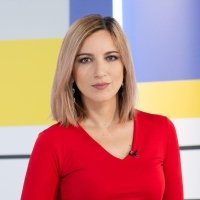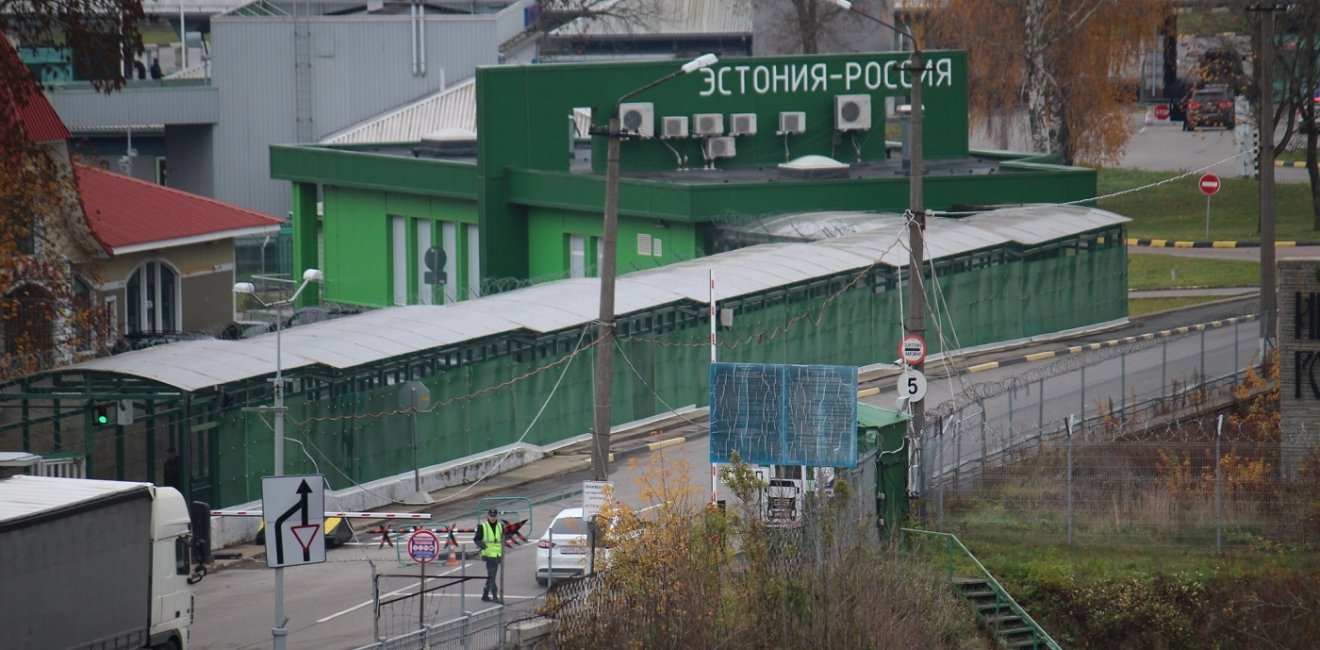
A blog of the Kennan Institute
Russian citizens are facing new restrictions. European Union authorities have just prohibited them from crossing the union’s border in cars bearing Russian license plates and from carrying certain items with them.
As these restrictions were being introduced, European sanctions were being lifted from some wealthy Russians who had never spoken up against the war. Meanwhile, some European countries continued their business and full-fledged trade with Russia. I am looking for logic here, but I fail to find it. I came across the phrase “selective solidarity.” Let us reflect on it.
Poland, following the Baltic countries and Finland, banned cars with Russian license plates from entering their territory. “Not one Russian vehicle will enter Poland,” Poland’s internal affairs minister Mariusz Kaminski announced. “This applies to all vehicles, both used for commercial and for personal purposes.” We know who these new restrictions will hit, and Russia’s president will not be among them. These measures are presented as attempts to inflict pain on the aggressor. In reality, they inflict pain on private citizens.
The measure, it turns out, is not mandatory for EU members. Each country acts based on its own ideas about the scale of the Russian threat. Traditionally, many in Central Europe consider it necessary to act as harshly as possible against Russia and Russians. Of course, it is important to remember Estonia’s, Latvia’s, Lithuania’s, and Poland’s history with the Russian Empire and the Soviet Union: a history of wars, domination, manipulation, and occupation. Yet, new injustice does not rectify past injustice.
After February 24, 2022, it is awkward to talk about human rights if we are talking about a person with a red Russian passport, because he or she is not quite the same as others. It is as if this person is a small piece of Vladimir Putin.
In the Russian liberal bubble, of which this writer is part, a debate about guilt and responsibility is raging. The most popular point of view is that anti-war, anti-authoritarian Russians are not to carry the guilt. But when it comes to responsibility, they need to accept it, just like every other passport-carrying Russian.
After all, anti-authoritarian Russians did not overthrow the tyrant, allowing a vicious attack on their neighbor to take place.
My position is simple: there is neither collective guilt nor collective responsibility. Both are individual. It is in North Korea where people are herded into orderly rows of the great leader’s admirers. But in Europe, free Europe, it is different, isn’t it?
Let us imagine one Tatiana Ivanovna who is heading from Russia to Poland. Tatiana has the legal right to enter, which means she is either a political activist or a journalist or a lawyer, likely someone persecuted in Russia. Or she has a long-term relationship with Poland—say, she has a family there. But she is being blocked at the border.
There is no practical benefit to limiting the rights of Russians who have nothing to do with the Kremlin or the crimes committed against Ukraine. Such decisions will only please the aggressor. With these restrictions, the West is turning ordinary and often anti-war Russians against the West! Polish authorities and others are picking low-hanging fruit: Russians who are coming to their country all by themselves.
Our Tatiana Ivanovna may have gone to protest rallies; she may have been detained or jailed. She may be one of those Russians who support Ukrainian refugees. Based on the results of thorough checks, she receives the right to stay in the EU. But in the eyes of a local minister, she did not “earn the privileges of freedom.”
I remember learning, when I was 14 years old in Russia, that I belonged to a group called “persons of Caucasian nationality” (that is, coming from one of the countries and regions of the Caucasus, including Georgia). In Russia, people belonging to that “nationality” (in fact, this group comprises numerous ethnicities and identities) were routinely ridiculed and bullied. Before, during, and after Russia’s 2008 war against Georgia, Russian authorities conducted a campaign of reprisals against Georgians and Russians with Georgian-sounding names. There was nothing you could do about it: your last name, the shape of your nose, the color of your hair were betraying. Thankfully, EU countries are far from reaching that level of discrimination against Russians. Their stance just needs to be better reflected in public officials’ speech.
Russia’s full-scale war against Ukraine has been going on for a year and a half. People die every day. The West responded to Putin’s crimes with sanctions, unprecedented (as President Biden put it) ones at that. But the war has continued.
Putin inspects rockets at the Vostochny Cosmodrome in the company of the North Korean leader Kim Jong-un; China’s leader Xi Jinping visits Moscow and eats pancakes with quail; the G20 adopts a ridiculous communique that does not mention Russia.
We are witnessing the unprecedented, without any irony, unity of the West in relation to Ukraine. But it does not seem to be solid. All kinds of prohibited goods—from Coca-Cola to weapon components—miraculously reach Russia through third countries. Oil and gas exports continue to bring billions to the treasury. Putin has money. This is not what Brussels, Paris, Washington would like to see.
I spoke to an influential source in Brussels, who frankly admitted: in times of war, do not expect justice. Russians, including liberals, who fled the country after February 24 are not considered a priority. A lot was expected from those who left, but the émigré politicians, activists, and journalists have been unable to organize real changes. The West is disappointed.
But what is the logic of sanctions? Along with the ban on cars, the news included details about the removal of restrictions against four Russian citizens. Grigory Berezkin, for example, was on the Forbes list back in 2021. His ESN group owns the RBC Group, a media company. Restrictions against Berezkin, introduced by the EU on April 8, 2022, were based on the conclusion that he was one of Putin’s “henchmen.” Berezkin has done nothing (publicly) to get rid of this status. He has never condemned the war, but he has now been crossed out of the sanctions list. Why?
Sanctions do not work, or work badly. Poland, the same country that heroically fights against the personal transport of Tatiana Ivanovna, with the other hand prohibits Ukraine from transporting grain through Polish territory. As soon as Kyiv agreed to tighten control over its agricultural exports, the European Commission lifted the ban on transport across EU countries, but individual prohibitions, introduced on a unilateral basis, continued. "We will extend this ban despite their disagreement, despite the European Commission's disagreement," Polish Prime Minister Mateusz Morawiecki said. "We will do it because it is in the interest of the Polish farmer."
Warsaw, as well as Budapest and Bratislava, does not allow Ukrainian agricultural products to pass through because its own farmers are losing income and they are protesting. And when it comes to European leaders’ careers, their re-election priorities are set without any hesitation. This approach could be called “selective solidarity.”
I strongly believe that Europe is still Europe, a place where the oppressed can count on support, where the persecuted can find refuge, security, and freedom. This is what my family, my colleagues, and I have found here. There are fewer and fewer places like this in the world. But now, after the start of a full-scale war and at a time of global crisis, the West must make it clearer than ever: justice, freedom, and the rights of every person remain the highest value.
The opinions expressed in this article are those solely of the author and do not reflect the views of the Kennan Institute.
Author


Kennan Institute
After more than 50 years as a vital part of the Wilson Center legacy, the Kennan Institute has become an independent think tank. You can find the current website for the Kennan Institute at kennaninstitute.org. Please look for future announcements about partnership activities between the Wilson Center and the Kennan Institute at Wilson Center Press Room. The Kennan Institute is the premier US center for advanced research on Eurasia and the oldest and largest regional program at the Woodrow Wilson International Center for Scholars. The Kennan Institute is committed to improving American understanding of Russia, Ukraine, Central Asia, the South Caucasus, and the surrounding region through research and exchange. Read more

Explore More in The Russia File
Browse The Russia File
Chechnya as a Model of Modern Russia

Russia’s Indigenous Communities and the War in Ukraine

Gas and Power in a Changing US–Russia Relationship

